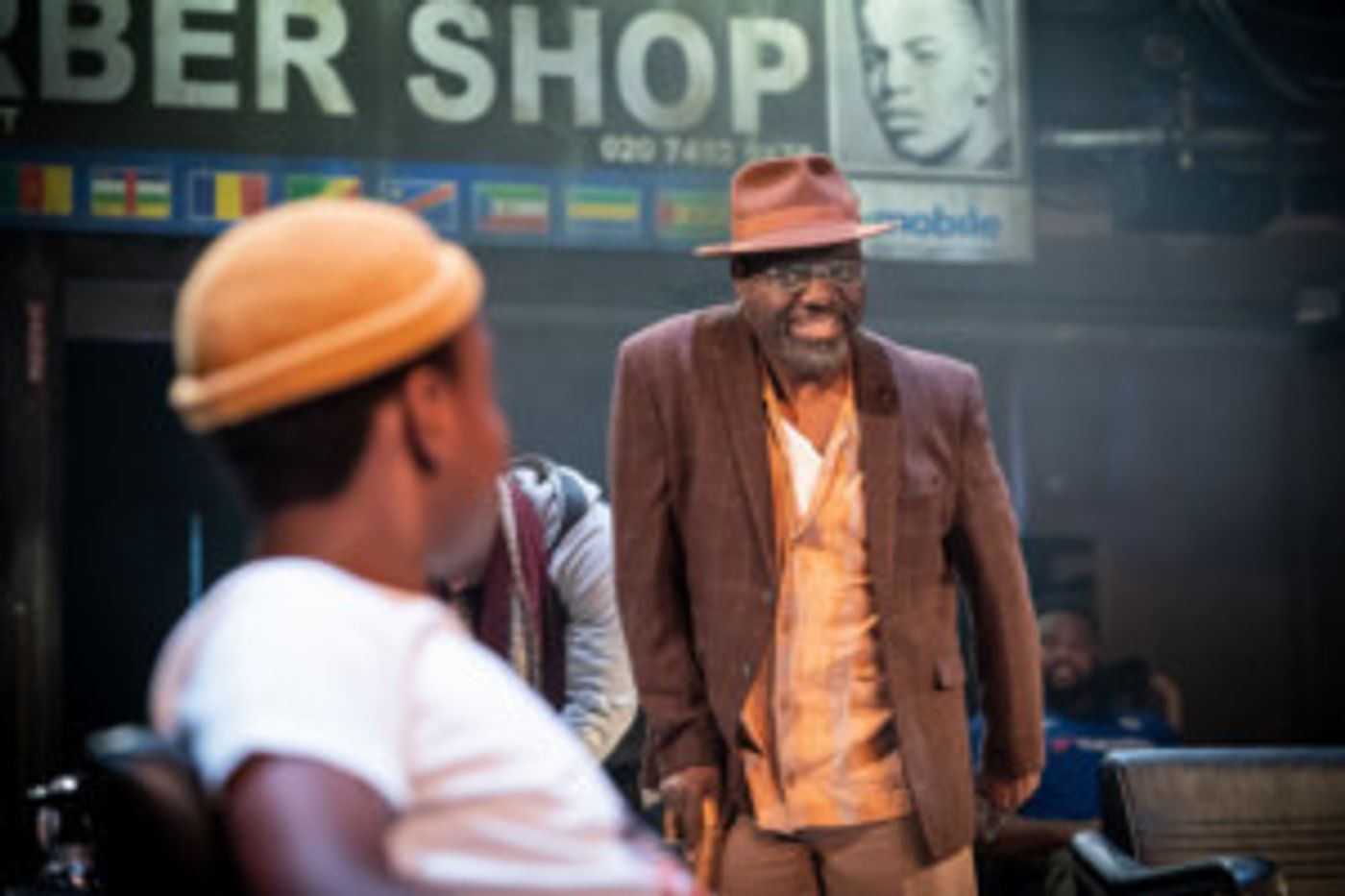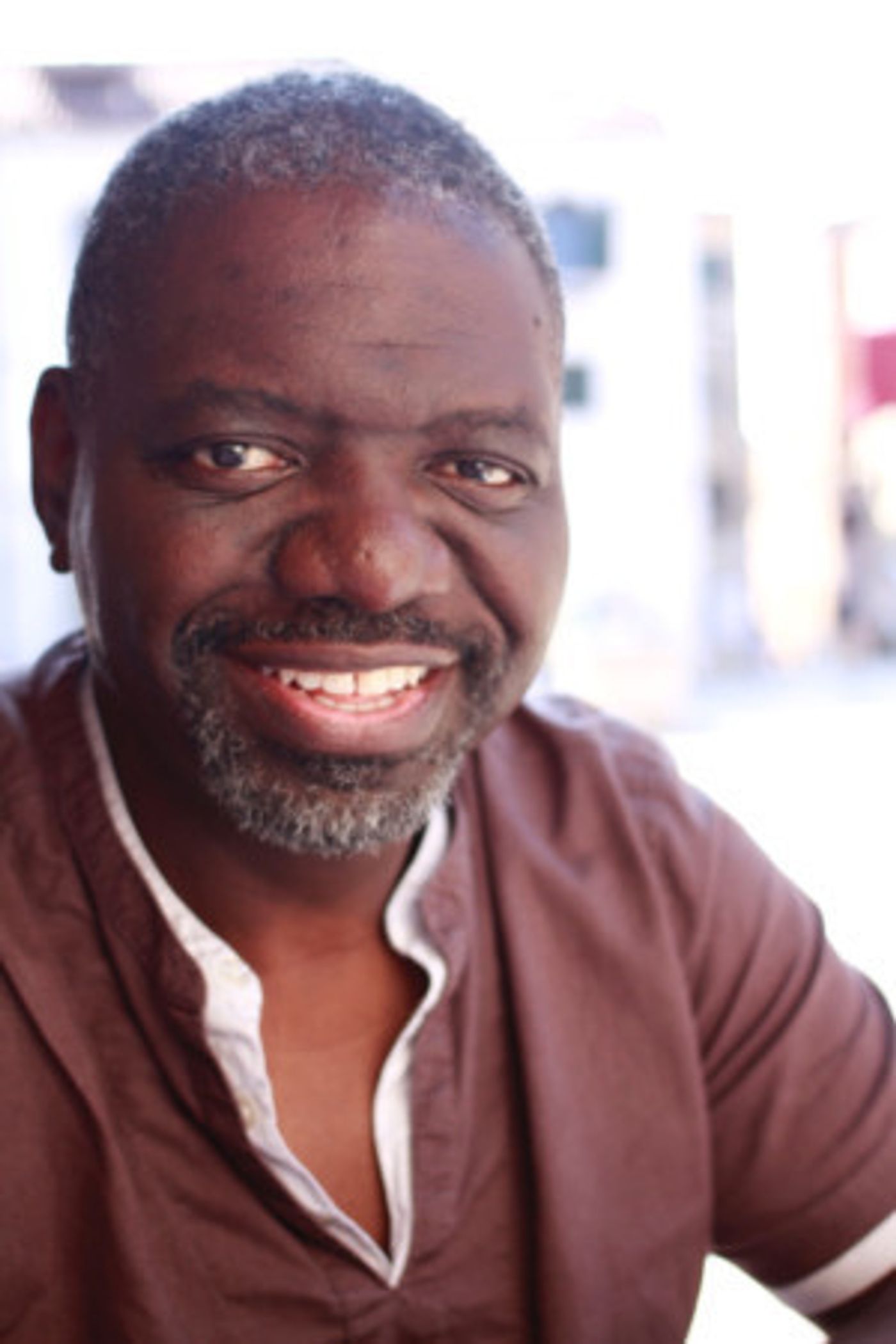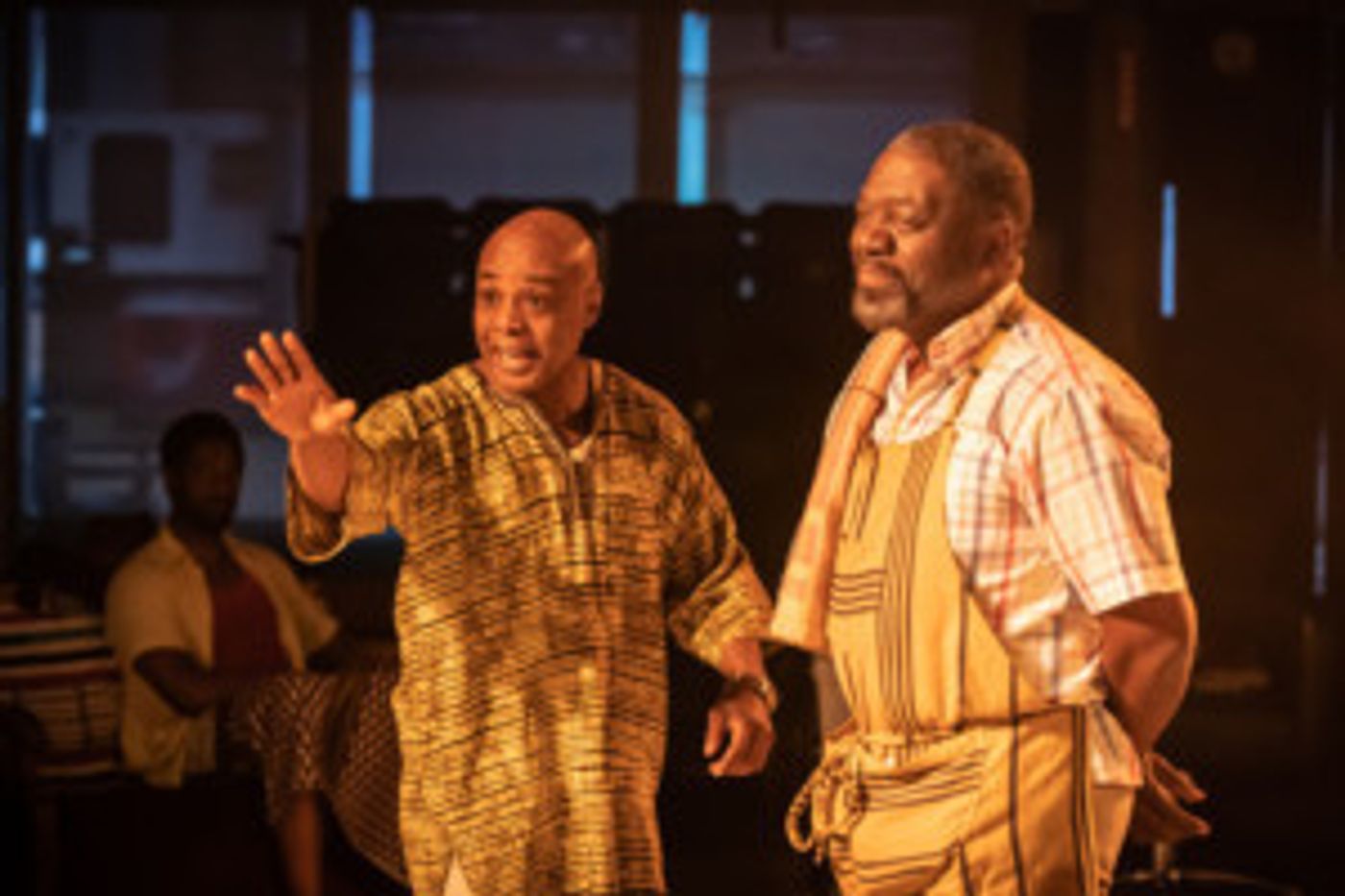Interview: David Webber Talks BARBER SHOP CHRONICLES at Roundhouse

Inua Ellams's Barber Shop Chronicles returns to London after a tour around the world to play the Roundhouse in Camden for a limited six-week run. The play had an overwhelming success at the National Theatre back in 2017, and David Webber has been part of the cast since its inception.
We caught up with him ahead of their new opening to hear about the tour, its reception overseas, and why the play is so successful.
How did you get involved in the project?
I had an audition through my agent. I'd never heard of it but it all sounded good and I liked the idea, so I went along and auditioned. Basically, I ended up chatting from start to finish with Bijan [Sheibani, director] and Inua [Ellams, playwright]. I was telling them stories from my experience within barber shops; the play truly resonated with me. I came out thinking "It would be really nice to do this show". I haven't been to any auditions like that one - just chatting. It was really good.
What's the journey been like from the very first rehearsals to now?
The play has changed every time we've changed cast. I remember the first time we left London to go to Australia with new cast members - before then, I was trying to be with the older guys, "Let's stick together and let's all do it", but when the new guys come they bring a new energy, the play changes and we start again. That's one thing I've realised about the show - it can be good with different people because the script is so strong.
New people can find new things and it organically goes a different way. That was really lovely. The rehearsal period was actually quite joyous. We had lots and lots of playing, experimenting, improvising, and trying to find new things. We didn't know what we had on our hands, we just knew that it was an enjoyable rehearsal. We had no idea that it was going to be a hit play.
What's the play about?
It all takes place in one day and it happens in six countries - London and five African countries. It goes to Accra in Ghana, to Lagos, South Africa, Uganda, and Zimbabwe. It kind of flies across the world back and forth, always returning to London. Each barber shop in these countries is connected and we understand it through the little things, little nuggets that the audience pick up.
You've got this character in Zimbabwe who's connected to the character we left in London, or something like that - all these connections are to be made as we go along. Imagine this fly-on-the-wall look at what goes on in the mysterious world of a black barber shop, of an African barber shop, in different countries. A lot of women have said that they really loved seeing what men talk about when they're not there.
And then you have the fact that it's an all-black cast or an African cast, and you get white people who maybe only ever go to their barber and they can see what goes on in these barber shops they go past in Peckham or wherever. It's like a different world. And then for the black people who come watch it, or the African people who come to watch it, there's a sense of ownership.
It's our story being told in a lovely, interesting, ambitious way. It's a very appealing tale, a very appealing journey that people go along to. There's humour and emotion, there are sad moments and very strong, powerful emotions and wonderful themes through it. People seem to be able to relate to it whatever their background.

Who do you play?
I play Abraham, a barber in Accra, Ghana. He's seen kind of talking about fathers and sons - he's quite an emotional being. For the most part it's two men talking while getting a haircut; it's quite intimate, I would say. Later on, he opens up a bit and he gets more humorous.
And there's a difference between when it's just two men talking as opposed to when there are four men in the room. It's interesting how they change and how they become bigger or there's more banter.
So, that's Abraham. Then I play a guy called Ohene - he's in London and he is a customer. He's quite opinionated and he takes every opportunity to say what he thinks about things; some people agree with him, some people don't. For him, it's a place where he can talk out loud in a way that he can't do at work. It's a vital space for people like him.
The other character I play is called Sizwe, an older gentleman who's in Zimbabwe. He gets to talk as well and I always feel with him that might be the only time he gets to talk to anyone during the day. It feels very vital that he's there, that he gets that space to talk and to be listened to. It's really important for him to be listened to.
I think the haircut is secondary to the actual being there and having other men around, being listened to and having interactions. His story is quite nostalgic, he talks about his childhood. It's lovely too. I'd say the show is strong around its stories. Lots and lots of wonderful stories connect and build this tapestry with a very strong theme in the middle.
Do you think that's the reason for its success?
Yeah, I would say that on one hand it's very specific and particular, it's about these African men and their lives, but at the same time it's really universal. Even when we were in New Zealand, as far away as we could possibly be from London, we found people related to it very well. People related to it with their own lives. There are issues between father and son, family issues.
Everyone has their own take on them, everyone can relate to them in their own way for whatever reason. The emotional heart of the play goes across and it's very inclusive, even though the subject matter is very specific and the stories are too. That's the genius of the writer - he manages to convey information that can touch the heart.
You can have a story about a black man in England or in Zimbabwe and then you have a white woman in Washington who's watching it and relating to it. That's amazing, people see the interconnections between human beings. We are more similar than we are different. That's the wonderful part of the show.
Did people react to it differently in other countries?
They reacted differently even in England, outside of London! Someone asked me what it's like in the UK compared to America and actually, just in the UK it was very different. Leeds was different from Manchester and from Leicester, each city had their own take. London is quite unique in a sense that the play is at home in London. People know Peckham and people know the places we mention.
London takes particular ownership of the show, a particular delight in its being our show about our city with an international perspective. I do wonder, if we went to those African countries we mention, if they'd have the same feeling as well. They might. That sense of ownership. However, in their own way, people in Perth took ownership of the show.
I think it's the way we start too - even pre-show, when we meet the audience and they can come up and talk to us and hang out with us, that's quite an unusual way to start a show. It's good that they know that they can come up and talk to the actors, it's OK to hang out with us. It gives people in the audience a sense of ownership, a sense of being part of something rather than just "them and us".
I think it's all about being there all listening together, sharing these stories. We are quite energised and uplifted by them, too. When they're passionate and interested, it also gives us that kind of energy to us as well. Every show is different because every audience is different. I don't know what it's going to be like each night. That's part of the joy of it, really. Each audience makes the house their own for that evening.

When it was on at the National Theatre it was praised for bringing new audiences into the theatre. Did it happen in other cities as well or was the phenomenon only linked to London?
That varied. I don't think it's happened anywhere as much as London. It definitely varied. For example, in New Zealand the tickets were sold out before we even arrived there. New Zealand has a very, very strong and passionate theatre-going audience and a lot of them love international work. But I don't think there was much diversity in it like there were in some others.
In Australia, we had a lot of people who don't watch lots of theatre come, so it did happen. London has the most. A lot of young people based wherever came to see the show in London. In America, we did special shows where we had school audiences in and schools tend to be very diverse there.
We did some shows at ten o'clock in the morning so they could watch it and go back to their school day, and for a lot of them that was their first experience at the theatre. General audiences sometimes were more white and middle-class, depending where you were, but it's worked out wherever we've been.
What's the message of the play and what would you like people to take from it?
The play has a total of 12 black actors who play 33 characters. One of the things is, when I started out, often I would be the only black actor in the show. That was almost the norm then. You were the black actor in the show. You felt very much like you were representing black people, even though that's a ridiculous concept. But you kind of were. You felt like you had to filter your behaviour a lot.
Often, you weren't even understood on a deep level by the rest of the company. I would say you had to have quite a strong filter on, how you behaved or how you communicated. Whereas in this, we don't need that, we all understand each other. So there's a much more relaxed level of work - we can take that off and be more open, because none of us is trying to represent black men or black people as a whole.
No one can say "Oh, that's black men" when in fact there are 33 different people. They can't pinpoint one person; you have a much reputable mosaic of black characters and African people. The audience can then see the differences and diversity in our communities and, at the same time, seeing all those differences makes them see how those make us as human as anyone else. Those differences are the same differences as in any other groups.
The play ultimately shows how similar we are, how we are more the same than we are different. I think one of the messages is also knocking down stereotypes of black men in particular. That's quite strong. Also, l look at fathers and sons being a very strong theme in the play. There are many messages, but those two cross lines and people receive them very well.
Barber Shop Chronicles runs at the Roundhouse from 18 July to 24 August.
Videos

